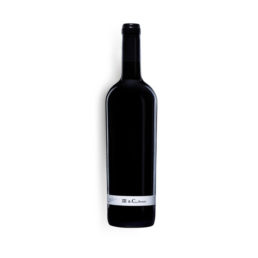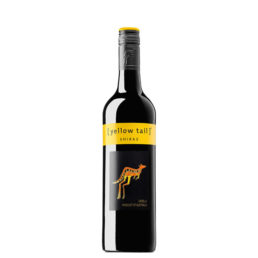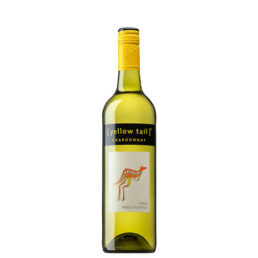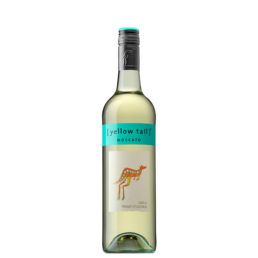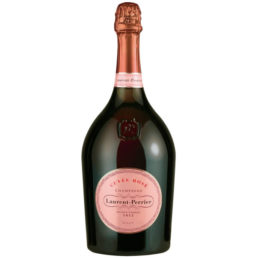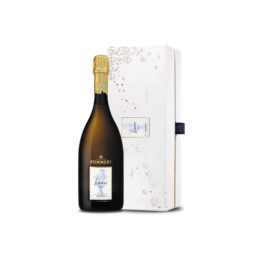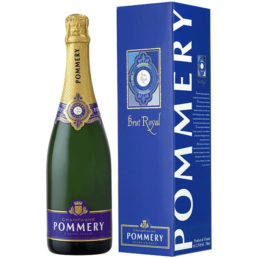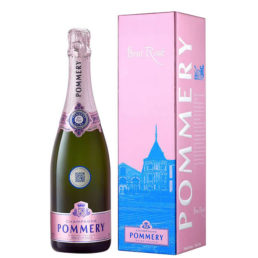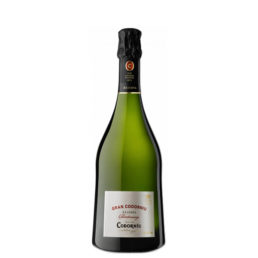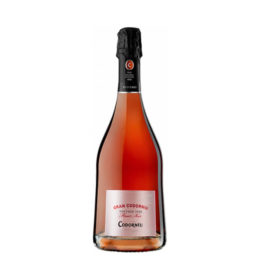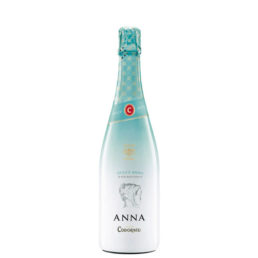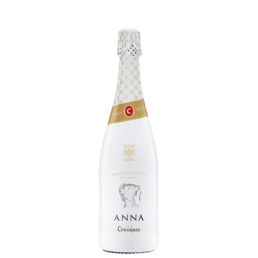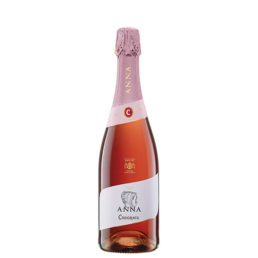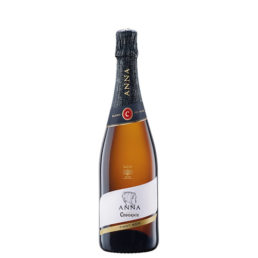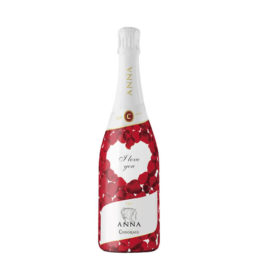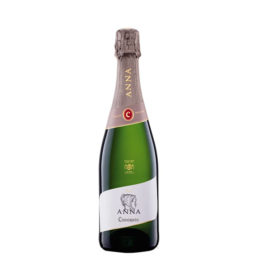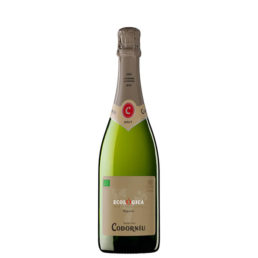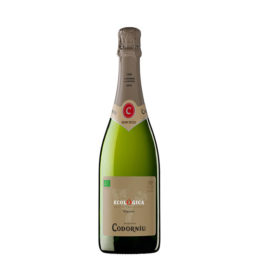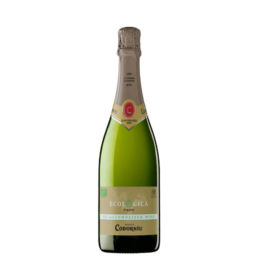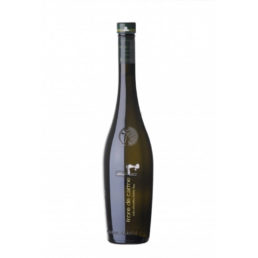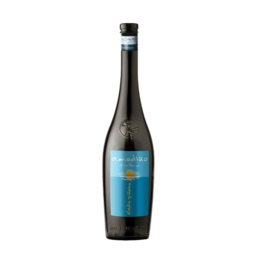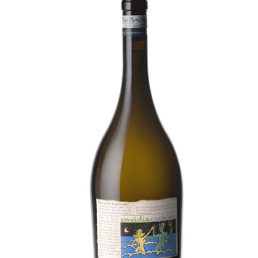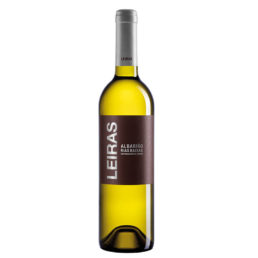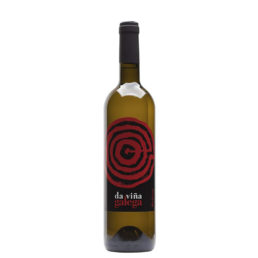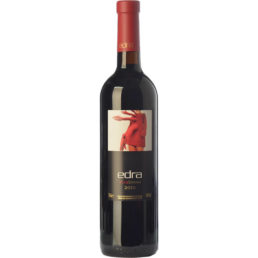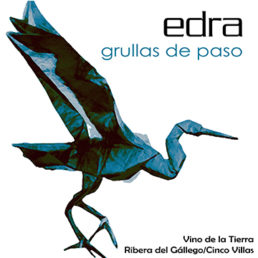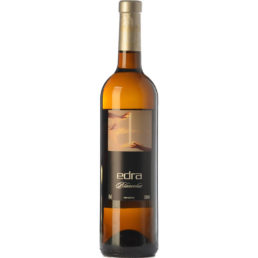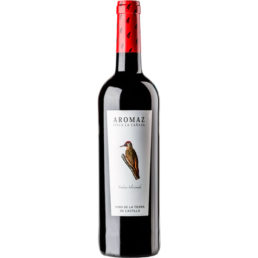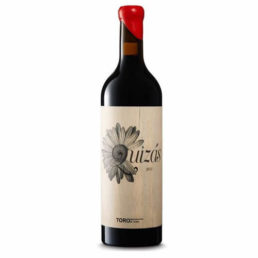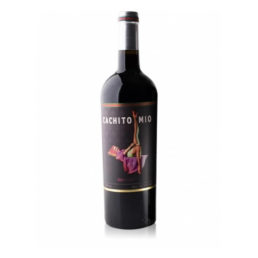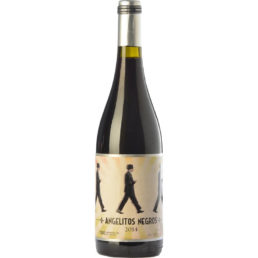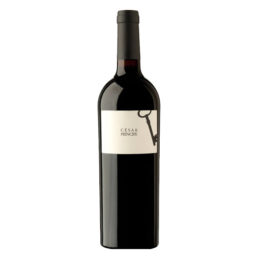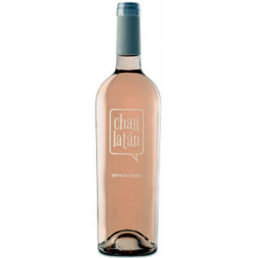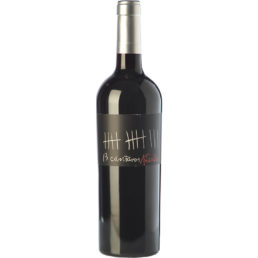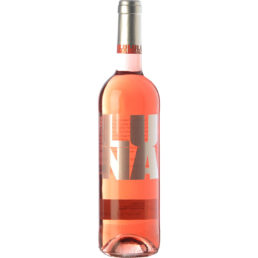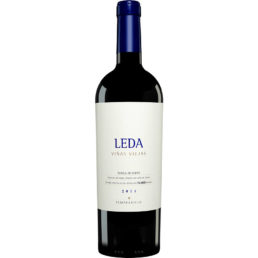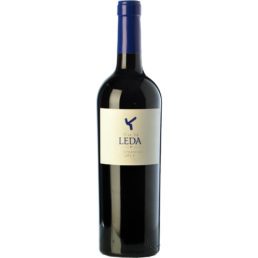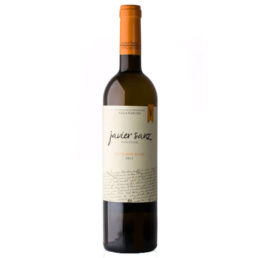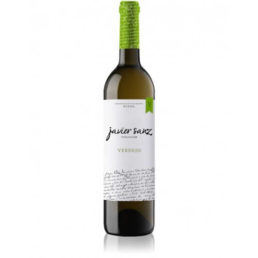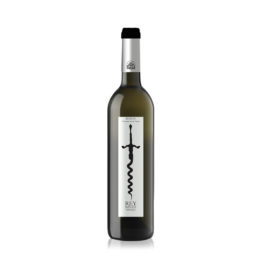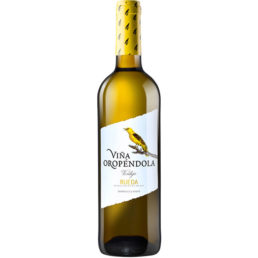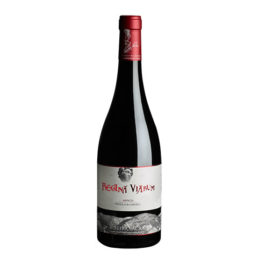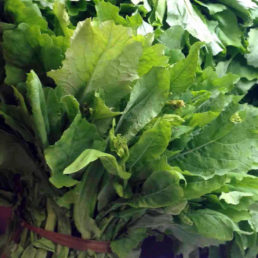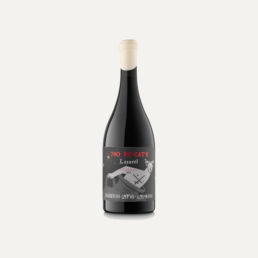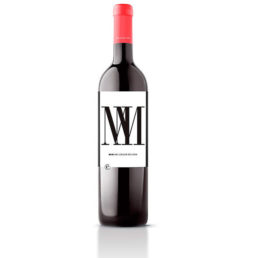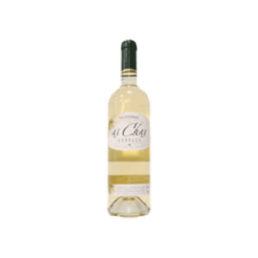Cool place, and dry
-
Red wine Beronia – III.C. Beronia 2008
DEVELOPMENTIt is part of the selection from vineyards of more than 70 years old, in addition the use of our vineyards prefiloxéricos. Cold pre-fermentation maceration for a few days, alcoholic fermentation below 26 ° C with pumping over newspapers. Ageing in new barrels of French oak during 14 months.AWARDS 91 points 2012 Parker (The Wine Advocate)SERVICE AND FOOD PAIRINGPerfect with red meats such as t-bone steak, steak, fillet steak or mature cheeses of sheep. -
Vino Tinto Yellow Tail Syrah – Australia
The philosophy behind the brand Yellow Tail is to offer wines that are simple and aimed at anyone who wants to enjoy a glass of wine with friends without major complications. Shiraz is the variety most widespread in Australia, so this wine red wine is the maximum expression of Yellow Tail. Yellow Tail Shiraz is a wine that is intense without being excessive, very easy to drink even as young wine.DEVELOPMENT (VINIFICATION) The Shiraz from Yellow Tail is made from grapes from vineyards of the highest quality. Once pressed and being removed from their stems, the grapes are fermented with the skins and in contact with oak wood. Its temperature-controlled fermentation ensures extraction of all the flavor, the color and tannins typical of the variety. The wine is bottled in the cellars of the family Casella, in Yenda, New South Wales.PAIRINGAccompanying Yellow Tail Shiraz with a good steak or a bbq. -
Vino Blanco Yellow Tail Chardonnay
The philosophy behind the brand Yellow Tail is to offer wines simple oriented to those who wish to enjoy a glass of wine with friends without major complications. Yellow Tail Chardonnay it is a white wine and fresh style lightweight, agrafeasible, refreshing, perfect to eat between friends or to celebrate the small joys of life.This wine is for sale in 40 countries -occur 100 millions of liters of wine per year- it has become the fourth wine brand most important of the world and the second most sold in the united States.DEVELOPMENT (VINIFICATION) Yellow Tail Chardonnay is made with grapes from vineyards of the highest quality. The fruit is pressed gently to extract the maximum freshness and flavor. The fresh grape clarified is fermented using a selection of different yeast strains. This adds complexity and texture to the wine end. The maturation of the lees of yeast, the malolactic fermentation and oak is used to impart creamy flavors of nougat, add richness and balance the acidity.PAIRINGIdeal to accompany seafood dishes, fish, or desserts. -
Vino Blanco Yellow Tail Moscato
Yellow Tail Moscato this is a white wine vibrant, full of flavor and personality. Yellow Tail Moscato is made with grapes from the best vineyards. The fruit is harvested in the cool of the night, to retain the maximum freshness and flavor. Para to ensure the smoothness on the palate, is used the must flower with a light pressed. The wine was stabilized and filtered cold to preserve all of its aromas.DEVELOPMENT (VINIFICATION)The Moscato Yellow Tail is made from grapes from vineyards of the highest quality. The fruit is harvested in the cool of night to retain maximum freshness and flavor. The must is obtained by leaving it out and applying slight pressure to ensure maximum softness in the mouth. Once developed, the wine is stabilized and filtered in cold to maintain their rich aromas and their freshness. Then assembled and added to a concentrated juice of grape to reduce their alcohol content.PAIRINGEnjoy Yellow Tail Moscato well chilled, as aperitif and with salad in summer. -
Champagne Laurent Perrier -Cuvée Rosé
The Cuvée Rosé it was created in 1968 from the boldness and the know-how of the House of Laurent-Perrier. Perfected at each stage of its manufacture, Cuvée Rosé is known for its consistency and its high quality. It is characterized by its aromas of ripe red fruit, high intensity and great freshness.Mix and wine making Varietal grape: Pinot Noir 100%Crus: 10 crus different mainly located in the areas south and north of the Montagne de Reims, including the famous Côte de Bouzy, especially of the best crus of Ambonnay, Bouzy, Louvois and Tours-sur-Marne .The grapes of plots in carefully selected classified and despalean before them. The maceration, lasting from 48h to 72h depending on the harvest, helps the extraction of colour and the development of the richness of aromatic full of Pinot Noir.Aging: 5 years minimum.The bottle Cuvée Rosé Laurent-Perrier, with their lines of generous and curvaceous, it is unique: an invitation to complacency. When Bernard de Nonancourt launched Cuvée Rosé Laurent-Perrier in 1968, he decided to present his creation in a bottle uniquely distinctive to magnify this cuvee a very special.He found his inspiration in the bottle quite thick made in the time of King Henry IV, adding the shield-shaped monogram "LP" with the form of seal. The packaging, in that moment it seemed very modern, has evolved gradually from 1968.In these days, Cuvée Rosé Laurent-Perrier is sold in a case of presentation is extremely elegant, reminiscent of the delicate color of the wine and its grapes Pinot Noir. It is a gift very appreciated and very sought after all over the world.Pairing Its deep aroma makes it ideal for pairing with raw fish marinated, grilled prawns, exotic dishes, Parma ham and desserts of red fruit. The more daring prove it with asian cuisine or indian. -
Pommery Champagne Cuvée Louise Brut Nature
The Cuvée Louise it owes its name to a great lady of Champagne, Madame Pommery, a brave woman, entrepreneurial, that marked a style in the elaboration of champagnes to take the reins of the business after the death of her husband.Since 1979, this cuvée de prestige, elaborated with grapes of the best plots, has maintained their style of great purity, finesse, demand and rigor.VineyardsChardonnay grapes from Avize and Cramant Grand Cru. Pinot Noir Cru of Ay Grand CruWinemakingAlcoholic fermentation and malolactic fermentation in steel tanks, selection of the best bucket, and second fermentation in the bottle according to the méthode Champenoise.AgingAged between six and eight years in bottle before disgorgement. -
Champagne Pommery Brut Royal
Pommery Brut Royal it is vivacity, aromas of white fruits combined with small red fruits. A mixture in a champagne that emphasizes the Chardonnay grape, from 40 selected villages of the areas Côte des Blancs and Montagne de Reims, cuyo weather contributes to the liveliness and delicacy of the variety.DEVELOPMENT (VINIFICATION) The initial fermentation is maintained at a low temperature (16 ºC). Foaming is particularly slow in the wine cellar to 30 meters of depth and at very low temperature (10 ºC) to allow the formation of the bubbles, fine and elegant.In consistency with the style Pommery, the wine passes through different clarified and meticulous decantation to separate the lees of the wine. The liquor dosage, prepared only with white wines Grands Crus, it incorporates all the properties of the different wines that make up the blend of this champagne.PAIRINGPommery Brut Royal can be enjoyed at any time of the day or night. -
Champagne Pommery Brut Royal Rosé
Pommery Brut Royal Rosand follows the style Pommery was developed by Thierry Gasco. Finely fruity, this champagne rosé is distinguished by a note more fleshy, the time that remains live, fresh and very subtle.DEVELOPMENT (VINIFICATION) Rosé from a blend of Pinot Noir and Bouzy Grand Cru. The color comes from Pinot Noir grapes slightly to wine in their old bottles, specially chosen in the vineyards for their maturity. This champagne rests in cellar for three years to develop the distinctive properties of Pommery Brut Royal Rosé.PAIRINGUnusual pleasure at the appetizer, Pommery Brut Royal Rosé is perfect with white meats and crustaceans, as well as accompanying desserts with red fruits. -
Cava Codorníu – Gran Codorníu Chardonnay Reserva
Gran Codorníu Chardonnay Reserva it is the true reflection of a grape, a terroir and a vintage, the best expression of the Chardonnay grape from our vineyards older. The fruit notes stand out in this Brut Nature cava. Its magnificent structure has its source in the fermentation in contact with oak for part of their base wines and in the ageing for more than 15 months.DEVELOPMENT (VINIFICATION) We plan the optimum moment of harvest for this variety. After the destemming and pressing of grapes, we obtain the musts which ferment at a temperature of 15-17 °C for 12-15 days. A part of the must of Chardonnay fermented in contact with oak, getting new shades. greater structure and complexity. Once you have completed the fermentations, is performed the blend and bottled the resulting wine along with the expedition liqueur, that determines your dosage Brut Nature. Bottles made the second fermentation followed by an aging period of a minimum of 15 months contact with the lees of the yeasts in our underground cellars at a constant temperature (15-17 °C). This is the traditional method, also used in the production of champagne.VINEYARD (VITICULTURE) The Chardonnay grapes used in production come from Costers del Segre, area marked continental climate, with large temperature differences between day and night and with poor soils and shallow, that avoid excessive vigor of the vineyards and provides great concentration, body and greater intensity of aromas of ripe fruit in the cava. Cropping systems follow the criteria of integrated production and are particularly adapted to the production of sparkling wine. The harvest takes place towards mid-August and is always carried out during the night, in order to keep the grapes as fresh as possible and preserve their intense aroma.PAIRINGGran Codorníu Chardonnay Reserva is a cava ideal to enjoy over a meal as its complexity improves the dishes more versatile: risotto, seafood platter, dishes of sea and mountain, “magret” of duck, Upholstery, smoked and strong spices.AWARDS (AS YOU ADD) -
Cava Codorníu – Gran Codorniu Pinot Noir
Gran Codorníu Pinot Noir it is the true reflection of a grape, a terroir and a vintage. The best expression of the Pinot Noir grapes of our vineyards older. Codorníu pioneered the cultivation of this variety, and this long experience has enabled us to take a step forward and create a cava exclusive, that enhances the unique nuances of this variety and of this add. A Brut rosé, with an intense aroma of red fruits and citrus, full of freshness and vivacity. Different, elegant, bold, unique and authentic.DEVELOPMENT (VINIFICATION) We plan the optimum moment of harvest, looking for an optimal maturation of the Pinot Noir grapes that provide us with the best potential of color in the skin in addition to good acidity and a moderate alcoholic strength,. After despalillar the grape, let this macerate, leaving the must in contact with the grape skin for a few 3 the 4 hours. Then filter the wort, because of the pink color, and proceeds to start the fermentation at a temperature of between 15 and 17th C. Later it is bottled the wine along with the expedition liqueur, that determines your dosage Brut. Bottles made the second fermentation followed by a period of ageing in contact with lees of the yeasts in our underground cellars at a constant temperature (15-17ºC). This is the so-called traditional method, also used in the production of champagne. En total, the wine will spend a minimum of 12 months in the cellar.VINEYARD (VITICULTURE) The grapes Pinot Noir used in the elaboration of Gran Codorniu come from vineyards of the D. Or. Quarry. These vineyards are the oldest in Spain (over 25 years old) and are located in an area suitable for its cultivation, Riudabella, where the climate is mild continental favors an optimum concentration of the fruit, a greater body and aromatic intensity. The soils are stony, what prevents an excessive force from the vineyard. Cropping systems follow the criteria of integrated production and are particularly adapted to the production of sparkling wine. The vintage of the Pinot Noir grapes takes place in mid-August and is always carried out during the night, in order to keep the grapes as cool as possible and keep their aromas intact.PAIRING Gran Codorníu Pinot Noir is an excellent companion snack consisting of rice fish. Perfect with salmon and blue fish raw (in sashimi, sushi, carpaccio or tartare) or grilled, since its acidity balances the fat content of these fish.AWARDS (ATTENTION LACK ADD) -
Cava Codorníu – Sweet Anna of Codorníu
Sweet Anna cava is a fresh and versatile. A champagne made primarily with Chardonnay, to complete your blend with the traditional varieties of Macabeo, Xarello and Parellada. The result is a cava fresh and soft on the palate, full of vitality.
Fantastic combination of fruity scents with the balance sweet in the mouth. The two phases taste, harmonize perfectly: the smell compliments the taste and reciprocally. On the nose it is appreciate fresh notes of fruits of spring and white flowers, memories of peaches and almond flowers. In the mouth provides a pleasant feeling of density, always keeping a great freshness and vitality.
-
Cava Codorníu – Anna de Codorníu Blanc de Blancs Reserve
The cava brut Anna de Codorníu Blanc de Blancs Reserve it is a unique edition to a selected gastronomy. The vivacity, the freshness and fruitiness of the wine cellars Chardonnay of Anna is enriched with a nurturing of cava reserva, namely, of more than 15 monthss, that makes it the perfect accompaniment for our cuisine. -
Cava Codorníu – Anna de Codorníu Rosé
Anna de Codorníu Rosé: femininity and seduction in a pure state is the definition more appropriate for this cava brut. The whole essence of Anna is expressed in this cava rosé: a sensuality that ranges from its unique design to your wine making, that grantedto a freshness, personality and aromatic intensity that turn every cup into a great occasion.DEVELOPMENT (VINIFICATION) The harvest of the grapes for Anna de Codorníu Rosé is made of night, taking advantage of the lower temperatures and quickly, to preserve the varietal aromas and prevent oxidation of unwanted. To reach the winery, is performed a pressing immediately after, during 24-48h to make a natural clarification at low temperatures. The winemaker decides on the basis of the target color what percentage of the flower must be intended to this cava, which is more fragile and delicate but at the same time, more elegant, fresh and aromatic.Once clean, the wort, is decanted into a stainless steel tank with cooling system for performing a controlled fermentation between 16-18 ºC. After the alcoholic fermentation, the wines are preserved in tanks, avoiding oxidation, until the time of bottling.VINEYARD (VITICULTURE) The grapes Pinot Noir and Chardonnay used in the production of cava Anna de Codorníu Rosé, come from own vineyards located in Lleida, the region of more continental climate of the D. Or. Quarry. This location favors an optimal concentration, less acidity, more body and greater aromatic intensity in the grapes. Cropping systems follow the criteria of integrated production and are particularly adapted to the production of sparkling wine. The harvest of these grapes takes place in mid-August and is always carried out during the night, in order to keep the grapes as cool as possible and keep their aromas intact and prevent oxidation processes or spontaneous fermentations.PAIRINGAWARDSCava gourmet excellence, Anna de Codorníu Rosé pairs with a large amount of dishes to perfection. A perfect complement to dishes that contain fish blue (tuna, salmon or sardines), rice and pasta. Also Ideal pairing with salads, fruits, vegetables, with birds, of dark meat such as quail or pheasant.It is a cava rosado brut ideal for tasting by the glass with all kinds of caps.93 PUNTOS ULTIMATE WINE CHALLENGE (USA) 2017GOLD MEDAL TASTING.COM (JERALD O KENNARD) - 2016SILVER MEDAL BERLINER WEIN TROPHY - 2013SILVER MEDAL CONCOURS MONDIAL DE BRUXELLES - 2012SILVER MEDAL CONCOURS MONDIAL DE BRUXELLES - 2009SILVER MEDAL INTERNATIONAL WINE & SPIRIT COMPETITION - 2014SILVER MEDAL INTERNATIONAL WINE & SPIRIT COMPETITION - 2013SILVER MEDAL INTERNATIONAL WINE & SPIRIT COMPETITION - 2011SILVER MEDAL INTERNATIONAL WINE CHALLENGE - 2014BEST IN CLASS INTERNATIONAL WINE & SPIRIT COMPETITION - 2011 -
Cava Codorníu – Anna de Codorníu Blanc de Noirs
Anna is dressed in night to surprise us with the utmost sophistication and elegance. Anna de Codorníu Blanc de Noirs it is a brut cava vital and expressive, which consolidates Anna in the first row among the pioneers in the elaboration of cavas of new concepcion: the Blanc de Noirs. Discover a cava white made exclusively with red grapes (Pinot Noir), with aromas of violet and red fruits. Because of its history, yourblend and its versatility, Anna has become the cava most iconic symbol of Codorníu.DEVELOPMENT (VINIFICATION) For Anna de Codorníu Blanc de Noirs we plan the optimum moment of harvest, despalillamos the grape and the prensamos gently. To be treated of grapes, the grape skins remain for some time in contact with the wort, and we use only the first fraction of this for the base wine of cava brut Anna Blanc de Noirs. These base wines show shades of pink soft in the beginning, that subside throughout the fermentations to be in a champagne color, more intense than those from white varieties. Once completed the fermentation and stabilized the wine, add the liquor circulation. The bottles pass to the underground cellars (at a constant temperature of 15 ºC) where takes place a second fermentation followed by a period of ageing in contact with lees of yeast. En total, the wine passes 9 months in the cellar, after which takes place the removed (decanting of the bottles to facilitate agglutination and subsequent elimination of sediment) and the disgorgement. Subsequently it is added to a quantity of expedition liqueur, and finally, cover definitely the bottle with a cork stopper.VINEYARD (VITICULTURE)The grapes used in the production of Anna de Codorníu Blanc de Noirs come from vineyards of continental climate on soils of slate of the D. Or. Quarry. The thermal oscillations of day and night are very pronounced; this favors an optimum concentration, more body and greater intensity in the grape. Cropping systems follow the criteria of integrated production and are particularly adapted to the production of sparkling wine. The harvest takes place towards mid-August and is always carried out during the night, to keep the grapes as cool as possible and thus to keep their aromas intact and prevent processes of oxidation and spontaneous fermentations. For this product, the entry of grapes in the winery is very careful and, as a result, the base wines that are made for the cava Anna Blanc de Noirs are intense, clean on the nose and mouth, and stand density and creaminess.PAIRINGFor the expressive style and taste appetizing this cava brut, it is advisable to accompany it with dishes bright and a little spicy which highlight the raw material: cold pasta with fruit, fish steamed or salt, cod in a salad, rice with vegetables, meat undercooked, cooked ham. Anna de Codorníu Blanc de Noirs is also a good company for fruit desserts: cakes, jams, lychees, mangos, macedonias.AWARDSGOLD MEDAL CINVE - 2012GOLD MEDAL CINVE - 2011SILVER MEDAL DECANTER WORLD WINE AWARDS - 2014SILVER MEDAL EFFERVESCENTS DU MONDE - 2011SILVER MEDAL INTERNATIONAL WINE & SPIRIT COMPETITION - 2014SILVER MEDAL PREMIS VINARI - 2013 -
Cava Codorníu – Anna de Codorníu T'estimo
The iconic bottle of Anna, the cava most iconic symbol of Codorníu, dresses of petals and proposes a form of what's more original to say "I love you". Anna de Codorníu T'estimo is a perfect gift to prove it to you with "flowers” and a safe purchase for those who want to be surprised.DEVELOPMENT (VINIFICATION)We plan the optimum moment for harvest for each variety used in Anna of Codorníu Love. After de-stemming and pressing of the grapes, we obtain the musts. We add selected yeast and the must ferments at a temperature of between 15 C and 17 ºC. Once you have completed all the fermentation and stabilized the wine, is performed the assembly of the same and then bottled the resulting wine along with liquor circulation. The bottles pass to the underground cellars (at a constant temperature of 17 ºC) where takes place the second fermentation followed by a period of ageing in contact with lees of yeast. En total, the wine will spend a minimum of 12 months in the cellar, after which takes place the removed (decanting of the bottles to facilitate agglutination and subsequent elimination of sediment) and the disgorgement, time to remove the sediments deposited after the second fermentation. Subsequently it is added to a quantity of expedition liqueur that determines the content of residual sugars of this cava brut. Finally, cover the bottle and definitely with a cork stopper.VINEYARD (VITICULTURE)The grapes used for the production of Anna de Codorníu Love come from two wine-making areas distinct. The variety Chardonnay comes from vineyards located in the region of more continental climate of the D. Or. Quarry, in Lleida, that is conducive to optimal concentration, less acidity, more body and greater intensity in the grape. Cropping systems follow the criteria of integrated production and are particularly adapted to the production of sparkling wine. The harvest takes place towards mid-August and is always carried out during the night, in order to keep the grapes as cool as possible and keep their aromas intact and prevent oxidation processes or spontaneous fermentations. Xarel lo varieties, The Macabeo and Parellada varieties come from vineyards selected by our teams of viticulture and oenology in the area of the Penedès, where these varieties show all its typicality: a good level of acidity, freshness and citrus aromas and floral.PAIRINGIts delicacy and freshness make Anna de Codorníu T'estimo in an ideal cava as an aperitif. Also, it is a brut cava ideal to accompany seafood fish and white meat. Good companion of sushi and sashimi or carpaccio little spicy. -
Cava Codorníu – Anna Brut Nature Classic
Anna de Codorníu Brut Nature it is our tribute to the last person of the family that took the surname Codorníu, in 1659 he married the viticulturist Miquel Raventós. Anna de Codorníu was the first cava to include Chardonnay variety in its blend, which gives it delicate aromas, a cool unmistakable and a unique personality.DEVELOPMENT (VINIFICATION) We plan the optimum moment for harvest for each variety used in Anna de Codorníu Brut Nature. After de-stemming and pressing of the grapes, we obtain the musts. We add selected yeast and the must ferments at a temperature of between 15 C and 17 ºC. Once you have completed all the fermentation and stabilized the wine, is performed the assembly of the same and then bottled the resulting wine along with liquor circulation. The bottles pass to the underground cellars (at a constant temperature of 17 ºC) where takes place the second fermentation followed by a period of ageing in contact with lees of yeast. En total, the wine will spend a minimum of 12 months in the cellar, after which takes place the removed (decanting of the bottles to facilitate agglutination and subsequent elimination of sediment) and the disgorgement, time to remove the sediments deposited after the second fermentation. Subsequently it is added to a quantity of expedition liqueur that determines the content of residual sugars of this Brut Nature cava. Finally, cover the bottle and definitely with a cork stopper. This is the traditional method, also used in the production of champagne.VINEYARD (VITICULTURE) The grapes used for the elaboration of cava Anna de Codorníu Brut Nature, coming from two wine-making areas distinct. The variety Chardonnay comes from vineyards located in the region of more continental climate of the D. Or. Quarry, in Lleida, that is conducive to optimal concentration, less acidity, more body and greater intensity in the grape. Cropping systems follow the criteria of integrated production and are particularly adapted to the production of sparkling wine. The harvest takes place towards mid-August and is always carried out during the night, in order to keep the grapes as cool as possible and keep their aromas intact and prevent oxidation processes or spontaneous fermentations. Xarel lo varieties, The Macabeo and Parellada varieties come from vineyards selected by our teams of viticulture and oenology in the area of the Penedès, where these varieties show all its typicality: a good level of acidity, freshness and citrus aromas and floral.PAIRINGThe cavas Brut Nature, by its low content in sugars, they are slightly bitter, what makes them a good ally for a snack (nuts, olives, canapés of foie-gras, caviar or substitutes...), wok vegetables, seafood and grilled meats. -
Cava Codorníu – Codorníu Ecológica Brut
Codorníu Ecológica Brut, the authentic expression of the cava traditional. Elaborated with autochthonous varieties naturally grown, of the best organic vineyards in the Penedès. To prevent any contact of the grapes and musts environmental rest of our production we decided to pick these grapes on different days of the rest of our vintage. Vinified with the utmost care in a reserved area of our historic winery. Both oenological products used throughout the development process as the various stages carried out to guarantee the denomination of organic cava.DEVELOPMENT (VINIFICATION) To prevent any contact of the grapes and musts ecological with the rest of our production we decided to pick these grapes on different days of the rest of our vintage. The material used in the winery is separated from the rest and are labeled in a special way the fermentation tanks. Both oenological products used throughout the development process as the various stages carried out ensure the designation of ecological.VINEYARD (VITICULTURE)All the vineyards from which is born Codorníu Ecológica Brut have ECO certification (European Regulations) and NOP (National Organic Program, USA) and are located in the Alt Penedès (Parellada and Macabeo) and in the Central Penedès (Xarel lo). The low yields per hectare, guarantees the maximum quality of the grape (8.500-9.000 Kg/ha, the maximum allowed is 12.000 kg/ha).PAIRINGCodorníu Ecológica is a cava ideal to highlight the natural flavors of healthy cuisine and a little spicy (stir-fry wok, papillotes, roasted vegetable, fish grilled or steamed and white meats). -
Cava Codorníu – Codorníu Ecológica Is Semi-Dry
Codorníu Ecológica Is Semi-Dry it is elaborated with autochthonous varieties naturally grown , of the best organic vineyards in the D. O. Cava in the Penedés. To prevent any contact of the grapes and musts ecological with the rest of our piu decided to pick these grapes on different days of the rest of our vintage. Vinified with the utmost care in a reserved area of our historic winery. Both oenological products used throughout the development process as the various stages carried out to guarantee the denomination of organic cava semiseco.DEVELOPMENT (VINIFICATION) To prevent any contact of the grapes and musts ecological with the rest of our production we decided to pick these grapes on different days of the rest of our vintage. The material used in the winery is separated from the rest and are labeled in a special way the fermentation tanks. Both oenological products used throughout the development process as the various stages carried out ensure the designation of ecological Codorníu Ecológica is semi-dry.VINEYARD (VITICULTURE)All of the vineyards of the D. Or. Cava of the born Codorníu Ecológica have ECO certification (European Regulations) and NOP (National Organic Program, USA) and are located in the Alto Penedés (Parellada and Macabeo) and in the Central Penedès (Xarel lo). The low yields per hectare, guarantees the maximum quality of the grape (8.500-9.000 Kg/ha, the maximum allowed is 12.000 kg/ha).PAIRINGCodorníu Ecológica semi dry is a cava ideal to highlight the natural flavors of healthy cuisine and a little spicy (stir-fry wok, papillotes, roasted vegetable, fish grilled or steamed and white meats). -
Cava Codorníu – Codorníu Ecológica Zero
Codorníu Ecológica Zero it is a delicious sparkling wine without alcohol obtained by desalcoholización, elaborated with autochthonous varieties of natural crop, of the best organic vineyards in the Penedès.DEVELOPMENT (VINIFICATION)To avoid any contact with the grape and wine, and eco-friendly with the rest of our production, we decided to gather these grapes on different days of the rest of our harvest. Based on selected wines, the spirit of Codorníu Green Zero is removed carefully by using an innovative system of vacuum distillation and low temperature with respect to the wine, minimizing the loss of its characteristics. The material used in the cellar was separated from the rest, and barrels of fermentation were especially marked. Both oenological products used along the development process as the various stages that are carried out guarantee the designation of ecological.PAIRINGVINEYARD (VITICULTURE)All the vineyards from which is born Codorníu Ecológica Zero have ECO certification (European Regulations) and NOP (National Organic Program, USA) and are located in the Alt Penedès (Parellada and Macabeo) and in the Central Penedès (Xarel lo). The low yields per hectare, guarantees the maximum quality of the grape (8.500-9.000 Kg/ha, the maximum allowed is 12.000 kg/ha).Codorníu Ecológica Zero is not only a perfect toast, but a great accompaniment to snacks, seafood, salads with fruit or flowers, fish and vegetables, crudités or desserts. -
We drink red wine 2015
Awards89 Points Guide AkataVino WineXtreme ed. 2017 -
White wine Flore de Carme Albariño
Preparation with a unique, Frore de Carme it is one of the albariños more exceptional. Its creator, Eladio Piñeiro, only produces this wine in the vintages that he considers. The wine is dense and full-bodied, with a good balance of fruit and alcohol, glyceric and with many nuances. All this supported by a great freshness and minerality. Their vines have an average age of more than 25 years old, bringing more of the five transition to biodynamics.The external image of Frore de Carme is as neat as its contents, highlighting the following aspects:• Label thermo-sensitive, that lets you know the optimal temperature of consumption.• Glass stopper airtight, tested in the united States and on the Rhine, that allows corkage manual. The system favors the evolution of wine, prevents oxidation and maintains the spectrum of floral and fruity Albariño, avoiding defects of cork and conjuring the contamination by TCA or anisoles.• Design of the bottle, which represents an amphora modern glass top quality.• Iconography, logos and bottle designed by Eladio Piñeiro and made by the artist Jaime Asensi.Awards 93 points guide Peñín -
White wine Amodiño
Amodiño Albariño it is a singular wine of slow fermentation whose subsequent aging is carried out with its own lees, with the of add earlier and the later. It is precisely this peculiarity which gives it a unique character and an evolution in the bottle, rich in nuances, through his long life.Under the warranty that offers a Designation of Origin Rias Baixas, the vineyards of this Amodiño Albariño are distributed in privileged areas within the varied orography of the Valley of the Salnés and Ribeira del Ulla. The harvest of the harvest of the year 2015 occurred during the last week of September and first of October, carrying out green pruning and a later selection in each plot as the clusters reached its maturity.After the selection of the clusters in the winery and subsequent maceration - a process that lasts between eight and ten hours - with the skins, its fermentation is spontaneous and takes place with their own indigenous yeasts at a low temperature and very long.It was aged on its fine lees, performing beating monthly in tank stainless for twelve months, to which he is joined by three months with the lees of the vintage previous (2014) and three with the rear (2016). Next, matured five months in cuba, and it was bottled under the iconography and the design of Eladio Piñeiro in December 2017. Your marketing begins already in march 2018.Piñeiro produces this Amodiño Albariño in their cellar Frore of Carme, space in which their wines acquire the exceptional conditions of soils of different zones of influence of the Estuary of Arousa.This 100% Albariño of skin maceration will provide any of your events a special touch and intense. As own of the galician land that is, a cup of Amodiño Albariño maridará perfectly with any tray of fresh seafood to happy lobster, mussels or crab, among other options. Also with fish such as cod, tuna or turbot will be an excellent idea, although for those that prefer to combine with meat products, it is recommended that you do with poultry.Also, pair with dishes with soft cheeses elaborated with milk of goat, with creamy risottos, or with pieces of sushi, for those of you that are regulars to the japanese food. -
White wine Envidia Cochina Albariño
Envidia Cochina - Tête de cuvée, occurs in soils with exceptional conditions, practicing a viticulture and the process of development unique. Our vineyards have an average age of more than 30 years old, carrying more than eight out of transition to the biodynamic.Packaging: Label that mimics a “clipping” of the press of an article on the Envy with a bullet, each add, the comic book bears the title the own brand of wine, creation of Eladio Piñeiro, design and realization Jaime Asensi.The vineyards are distributed in privileged areas within the varied orography of the Val do Salnés. The harvest of the harvest of the 2016 it was during the penultimate and last week of September. After the manual picking of the grapes in the vineyard and a further selection in the winery are macerated (8-10 hours), is done foot of cuba days before to assist the spontaneous fermentation with its own yeast, “wild”, fermented at a low temperature very long.After fermentation, of all the harvest, we selected the top of the vats of that vintage with more fruity (Tête de Cuvée). Have aging on its own fine lees from 6 months (performing beating weekly 3 first few months and monthly the 3 following), the blend final is the result of the assembly with a 15 % the add above (2015) intended to Frore of Carme (which, until that time, it was aged on its fine lees with beating monthly, during 1 year, more 3 months with the lees of the vintage following (2016), more other 3 months maturing in tank of stainless steel).Bottled, on day Flower, and started its marketing in the month of June 2017. -
Albariño white wine Leiras
In this white, produced in the Rias Baixas, to the Codorníu Group, you will find freshness, minerality and elegance, three qualities that define the wines in the subregion of Val do Salnés, from where come some of the best Albariños of the D. Or.Piles (farms in galician) it is a single variety of grape Albariño (100%). This wine pairs perfectly with fish, seafood, snacks, rice or pasta. Its structure allows also to accompany white meats or sausages. -
Galician white wine Albariño Daviña
Young white wine cellar Adegas Valdes fresh with fruity and citrus. -
Red wine Edra Xtra Syrah
Edra XtraSyrah 2014, variety of balanced year after year, with a freshness and ripe fruit as a response to the summer balanced 2014; powerful, with personality and smoothness at the same time. It offers intense and deep aromas of menthol because of the variety and toasted, roasted and chocolateblack, due to the terroir and the sunny Hoya de Huesca in the foothills of the pyrenees. Silky and with a long and honest aftertaste. The rest in French oak and a little american,with batonagge with their own lies, given the maturity and golosidad necessary.Vintage grape own, selection of plot, vintage manual 8 September.Fermentation maceration in cold chamber, delestage open and closed.Malolactic barrel French.Aging ”batonnage” with the addition of the lees 12 months in French oak selection andAmerican.Label the work of the artist Mª Pi Rivera -
Red wine Grullas Paso
In the municipality of La Hoya (Huesca),small winery Bodegas Edra made with IGP Ribera del Gallego - Cinco Villas, the wine Edra Grullas Paso, a red wine oak own vineyards located in the Pre-Pyrenees of Aragon.The blend is still a selection of Merlot, Cabernet Sauvignon, Tempranillo and Garnacha.Activities in the vineyard always develop in a respectful way with the environment, doing all the work manually without using chemicals or aggressive elements. The vineyards are surrounded by fields of legumes and alfalfa.Selected grapes are separately vinifica fermentations in stainless steel at a controlled temperature and delestages newspapers to extract maximum pigmentation and phenolic components of the skins. Red wine Edra Grullas Paso 2016 Ribera del Gallego makes raising 4 months in barrels of French and American oak which are made "batonnage" with addition of lees. the blend is made and bottled.The name of this wine, Step cranes, He wants to remember the presence in the vineyards of these migratory birds when they take a short break before resuming forces on their journey from north to south. -
White wine Edra BlancoLuz
ʱ??BlancoLuz", that makes lovers of white wine to have the pleasure at your fingertips. This vid, almost unknown in the vineyard Spanish, provides a wine, wine of good table, is made to the 100% with the variety Viognier white full-bodied with a texture that is too smooth. The attack evokes aromas of flowers very fine, as honeysuckle, rosemary and fresh fruits such as pineapple and apricot, evolving then to the pear sweet, and ending curiously enough in aromas intrísecos to our climate, as dried fruit and lightly toasted. It is also spicy and for its high maturity, fills the mouth of honey and sweet sensations. Perhaps the 2012 is the best add up to now, spectacular.There is a variety easy in your culture and has been crafted with care and maximum protection. Unknown in our area, for that reason it will be labeled as Table Wine. The vintage and the variety on the back.To move all the work done in the vineyard to your glass of wine, it is macerated in cold to extract all their treasures trapped in the skin of the grape and transferring them to the liquid gold, the must, with the care of a fermentation soft, are transformed into an explosion of sensory when it is about the wine to our senses. A small fraction is fermented in oak barrels, to achieve an unforgettable experience when you decide to try it. White fish and shellfish such as crab, lobster and scallops make their smoothness engolosine your mouth.The photo of the label, “Ne Timeas I”, it is the work of artist Mary Pi Rivera, huesca international recognition. -
Red wine Vineyards of Aromaz – Aromaz
Aromaz it is one of the last projects of the family Osborne-Osborne. Born in the heart of Castilla La Mancha, in the finca La Cañada, one of the most beautiful of the region.The grapes for the Aromaz come from a single payment called The Captain, the vineyard of the highest estate, with strains in the glass of more than 40 years resting on limestone based soils and stony. There the yields are very small and the quality very high, as certifies every sip of Aromaz.It is a red, fruity-packed with typicity and character. Of cover layer and cherry color, the spices and berries are dealt the role in a nose to be seductive. In the mouth it is kind and noble, of elegant touch and a good fruity. Juicy, balanced and long finish. -
Red wine Casa Maguila – Perhaps
The Casa Maguila It has the habit of baptizing their wines with names boleros. This is particularly inspired by the famous song by Cuban artist Osvaldo Farrés "Perhaps, maybe, maybe". We have a wine balsamic on the nose and mouth, with aromas of ripe fruit and a balanced taste, tasty and long.WinemakingMechanical destemming and grape selection on vibrating belt. It encuba dry ice lowering the temperature to 6 ° C and allowed to start fermentation spontaneously. Malolactic fermentation in barrel.AgingParenting 20 months in French oak barrels, of which 80% They were new and the rest used.Limited productionPairing1.812 bottlesWhite meat, red meat, traditional cuisine and Mediterranean cuisine. -
Red wine Casa Maguila – Cachito Mío
Cachito mío is the name of a well-known bolero, is presented to the public with a striking and bold exterior presentation, it has been conceived as a wine of bold spirit and innovative within the D. O. Toro.Faithful representative of the character of your wine cellar, it is striking for its style, that expresses all the power and fruit of the grape Tinta de Toro, at the same time that it is very pleasant to drink, with an easy and at the same time complex step of mouth. .ElaborationSelection of bunches in the vineyard and in the winery, from old vineyards. Kernels of the harvest, with total elimination of scratches and other foreign elements. Vatting and fermentation with whole grains at a controlled temperature, finishing off with your drained and pressed at low pressure. Moderate stabilization and bottling. -
Red wine Casa Maguila – Angelitos Negros
Angelitos Negros it is a red wine with D. O. Toro, elaborated with grape variety 100% Tinta de Toro (Tempranillo), from vineyards of between 20 and 40 years planted in sandy soils with high percentage of limestone and cultured on glass in the traditional way.The grapes to get the wine Angelitos Negros, are selected at harvest and in the cellar, by performing an exhaustive selection of the grapes, by choosing only the ones which reach their optimum point of ripeness and healthiness. The grapes for the wine Angelitos negros are encubadas and fermented in whole grains. Carbonic maceration a day and a half, pressing and barreling to perform the malolactic fermentation in concrete tanks. Later Angelitos Negros performs an aging process of 6 months in barrels of second year 50% French oak and 50% american oak. -
Red wine Caesar Prince
Caesar Prince the Duke was the father of Ignacio, it seems that outside of the nobility and the really nobility had. I used to say "a long title and low pay". He was a man austere but full of values, deep values that give the roots, the work and the love for his own. He never stopped working, all the days of his life went out into the field, always pending, always in their things.Today we have this wine thanks to his work in the vineyards, to improve and maintain the vineyards, to suffer the vintages, your unconditional support.Caesar Prince is more than a brand, it is our badge and our responsibility. Make the wines your best is not enough, also have to transmit our history, our values, for the enjoyment of all and for the generations to come will get them this lesson, it will be his best legacy.Is the wine most recognized winery and one of the first wines of the Appellation of Origin Cigales in being present in the letters of the most prestigious restaurants.It is made with grapes from vineyards of between 70 and 100 years old, of the plots The Black, The Stop, The Sheepfold and The Sailboat, located on hillside with little slope. Although the vineyards there are other varieties, only be harvested for Caesar Prince the strains of the Tempranillo variety, with very low yields. The soils are composed of clay and sand in-depth, with a lot of pebbles on the surface.After 14 months of ageing in oak barrels, the result is an elegant wine, fine and subtle.Awards93 points guide Peñín -
Rosé wine Caesar Prince – Charlatan
The words flow with agility, there is a great struggle for intervening in the conversation, there is a huge desire of communication... it is the time of "charlatan". A wine dedicated to the lovers of the talk, to the big talkers, as we are... let us know what you know well!Charlatan it is the latest innovation from the winery, a rosé wine that is far from the classics that are made in the Denomination of Origin Cigales. It is made with the grape Garnacha Tinta but his direct pressing and fermentation at low temperature favors a pink color, very pale, without losing the aromas of fruit and flowers typical of the variety. A pink with a soul of white.‘Charlatan’ is a wine modern, relaxed and without complexes, eye-catching and festive. A pink to make you cool in any occasion. -
Red wine Caesar Prince – 13 Nicolas Cántaros
He took out his pocket knife, where he lived since his father gave it as a child, and she recorded "I must 13 Nicolas pitchers' on the mud wall at the entrance of the armhole that belonged to his brother. It was the cellar of his grandparents, they remember.Debt wine was to fill the tino, fleeing oxidation, Common favors between neighbors and relatives because the survival was a matter of all. It seems that the debt is not paid off and today we take also advantage.Was honored not collect it for the many favors exchanged and honor also not delete, that said favors not forget. Also honor and remember what we do here.13 Nicolas Cántaros It is a wine that speaks of our history, the old cellar dug into the rock on the slopes of Fuensaldaña, where Grandpa Eutychius began producing his first wines in bulk. He used the limestone walls of the cellar to bring your own accounting, the 'should' and 'have'. This wine is a tribute to his legacy, to the traditions of Fuensaldaña and Cigales.Comes a selection of Tempranillo vineyards located exclusively in Fuensaldaña and remains 8 months in oak barrels. It is a fruity wine cooler and Prince Caesar, designed to enjoy as you would grandfather, a snack with friends. Those priceless moments that gives the wine. -
Rosé wine Caesar Prince – Clarete de Luna
Have that, before you begin the harvest, the vineyards were visited in the night by some neighbors friends others. In times when the need was the greatest company of the peoples, it was called “Clarete de Luna” the wine, which made those who did not have vineyards own, so apañaban with the other, yes, discreetly. Only the moon was witness of that feat.They were times in which the wine was important complement to the food, the claret was accompanied by the site and lunch, happy the sad and stews and help you to take better penalties. This wine is a tribute to all those who once needed and that today we enjoy.This is a wine made with Tempranillo, mainly, and white varieties such as Verdejo or Albillo. Cool, fun, sweet to all the public... and all the days. -
Red wine Bodegas Leda – Leda Viñas Viejas
Leda Viñas Viejas it is the wine which embodies the principles of Bodegas Leda. A red wine multiterroir made from grapes from Tempranillo vines 70 and 100 years old, with low yields between 2.000 and 2.500 Kg/Ha, from two of the most emblematic areas of Castile and León: Ribera del Duero and Toro.
Leda Viñas Viejas is the flagship of the winery, with a production that varies depending on the quality of the vintage, between 2.000 and 12.000 bottles.
100% Tempranillo. Leda Viñas Viejas is a wine of guard powerful racial and, with an ageing long 18 to 24 months, depending on the vintage.
PairingMeats white or red, casseroles, soups and stews. -
Red wine Bodegas Leda – Mas de Leda
Most of Leda it is the result of the integration of different payments Tempranillo, from vineyards of more 40 years old, with yields between 4.00 and 4.500 Kg/Ha.
It is a wine Multiterroir, elegant and easy to drink, that seeks to capture the essence of the area from which it comes, mostly Bull, Cigales, Valtiendas and Tudela de Duero.
-
White wine Javier Sanz Viticulturist – Javier Sanz Sauvignon Blanc
ViticultureThe variety was brought more than 40 years to the area, from France. Strains are located in the place of Camino Real and, for its characteristics, both the type of cluster, and vines, It was adapted exceptionally stony terroir to terroir stony. It has a short vegetative period vegetative and have small leaf, pentagonal, small clusters, very compact, and elliptical berries. The climate is continental with very cold winters, rains during springand autumn and summers with very high daytime temperatures and drops of up to 20 ° C overnight. This causes marked continentalidad grapes retain their acidity and aromatic compounds which develop during the day.ElaborationThe harvest is performed mechanically, night and with integrated despalilladora, at optimum ripeness. The preparation is meticulous, with a criomaceration, clarified wort gravity for one day. Fermentation temperature below 15 ° C stainless steel tank. slow fermentation to preserve maximum aromas.PairingIt will combine with any type of shellfish, natural or lightly cooked; seafood, such as shrimp or crab or just with grilled white fish. Also it combined with cold dishes such as gazpacho, the vichyssoise or goat cheese salad. -
White wine Javier Sanz Viticulturist – Javier Sanz Verdejo 2017
ViticultureVerdejo grapes from which the wine is produced come from our oldest vineyards in La Seca. They are the result of the personal selection of Javier Sanz. Is about 45 ha ha over 40 years of age. The floor where these vineyards is composed of a surface and subsurface pebble clayey, factors that give the wine a touchmineral. The climate is continental with very cold winters, rains during spring andautumn and summers with very high daytime temperatures and drops of up to 20ºC at night. This causes marked continentalidad grapes retain their acidity and aromatic compounds which develop during the day.ElaborationVintage is nocturnal mechanical and is carried out with integrated despalilladora at its ripest. During the fermentation process a rigorous temperature control is followed in order to preserve the maximum flavor characteristics of this wine. Criomaceración, clarified wort gravity for one day. Fermentation at a lower temperature15ºC; in stainless steel. slow fermentation to preserve maximum fruit aromas. Bred with its lees for months before bottling.PairingIt's great to enjoy it as an aperitif or with seafood, salted fish, ceviche, sashimi, etc. Combined with delicate flavors and slightly spicy white fish. -
White wine Javier Sanz Viticulturist – Rey Santo Verdejo
The white wine Javier Sanz Viticulturist Rey Santo Verdejo it belongs to the D. O. Wheel. The culture is done on poor soils with boulders on the surface (what facilitates drainage) and subsoil clay and limestone. -
White wine Viña Oropendola Verdejo
Comes from a selection of vineyards of the Verdejo variety arranged in vase and with an age between 40 and 120 years old. The vineyards are located on soils of alluvial terraces and rocky near the margin of the river Duero.Foster
3 months in tank on lees with Batonnages biweekly.
Fermentation
During 21 days at a temperature of 14-16ºc
Time of Maceration
16-20 hours film in cold at 10 ° c












